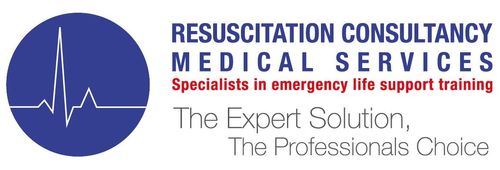Why attend this course?
Medical emergencies can happen anywhere and anytime, even in a dental practice. Whether a patient has received treatment or not, there’s always a risk of them collapsing. Therefore, it’s imperative that all dental practitioners have the necessary training to deal with such situations, including resuscitation, and can provide evidence of their capability.
Training Requirements for Dental Practitioners
The General Dental Council (GDC) has set guidelines in their ‘Scope of Practice’ 2013, which require all dental registrants to be trained in handling medical emergencies. This includes having the capability to perform resuscitation, among other things. In addition, every member of the dental team must complete a minimum of 10 hours of medical emergencies training within each 5-year Continuing Professional Development (CPD) cycle. It’s advisable to take at least two hours of training annually.
Course Overview
This course complies with the requirements and recommendations made by the GDC, Resuscitation Council UK and the CQC.
The course is run in accordance with the RCUK guidance and that of the GDC and CQC. This course gives practical hands on experience using simulated scenarios and role play that delivers the skills and confidence to manage a situation in real life. You will also gain confidence in using your own medical equipment and drugs in a number of simulated emergency scenarios.
On completion of the course, the practice will receive a host of resources to help assimilate the knowledge and skills. This includes medical emergencies flow charts to use as an aide-memoire and access to our clinical support telephone advice line and web site support pages.
Course Length:
At least 2.5-3 contact hours
Course Assessment:
Assessment is continuous
Learning Outcomes
- Demonstrate a structured approach to assessment, treatment and management of a seriously ill patient.
- Demonstrate effective CPR and safe use of the AED.
- Demonstrate and list the appropriate drug use for common medical emergencies.
- Demonstrate the use of medical devices and equipment that can be used while managing a poorly patient.
- Demonstrate closed communication, sound leadership and an understanding of CQC requirements, including the use of equipment for medical emergencies.
Course Structure and Programme
The course is very practical in nature and candidates will work in small groups to assess and treat a simulated emergency in the dental chair or waiting room. The instructor plays the patient role and is a very convincing patient!
Candidates are expected to manage the patient using a structured approach using your own equipment and drugs.
- The structured ABCDE approach to patient assessment & treatment
- Overview of medication management & treatment for common medical emergencies: Chest Pain, Anaphylaxis, Hypoglycemia, Convulsions, Asthma, Stroke, Cardiac Arrest, Choking, Unconsciousness & Sepsis
- Safe & effect use of pulse oximeter, oxygen and glucometer
- Current adult BLS & AED guidelines / Overview on child resus & cardiac arrest in pregnancy
- Safe & effective use of BVM, oral airways & AED
- Use of auto- injectors and IM injection technique
- Human Factors – Team working and non- technical skills
- Equipment checks
Message us, we love to chat
Contact Details
Contact our team of clinical professionals who practice what they teach. We would love to hear from you.
Phone: 0333 0122 999
Email: info@rcmstraining.co.uk
86 Forest Walk
Buckley, Flintshire
CH7 3AR


